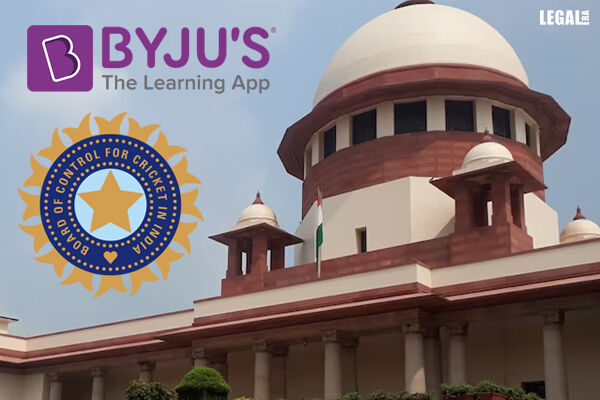
Byju’s Insolvency Proceedings to Continue as Supreme Court Dismisses BCCI’s Appeal
Introduction
The Supreme Court has dismissed pleas filed by the Board of Control for Cricket in India (BCCI) and Riju Raveendran challenging the National Company Law Appellate Tribunal’s (NCLAT) decision that refused to allow BCCI to withdraw its insolvency application against Byju’s parent company without prior approval of the Committee of Creditors (CoC).
Factual Background
BCCI had initiated insolvency proceedings against Byju’s before the NCLT in July 2024, citing unpaid dues of ₹158.90 crore. After a settlement was reached between the two entities, BCCI sought to withdraw the application. However, the CoC was constituted after the withdrawal application was submitted to the Interim Resolution Professional (IRP), and the NCLT and NCLAT ruled that BCCI required approval from 90% of the CoC members to withdraw the application.
Procedural Background
The BCCI had filed an application before the NCLT to withdraw the insolvency proceedings against Byju’s. The NCLT dismissed the application, holding that approval from 90% of the CoC members was required. The BCCI and Riju Raveendran then filed appeals before the NCLAT, which were dismissed. The BCCI and Riju Raveendran then approached the Supreme Court challenging the NCLAT’s order.
Contentions of the Parties
BCCI’s Contentions:
- BCCI argued that it should be allowed to withdraw its insolvency application against Byju’s parent company without prior approval of the CoC.
- BCCI claimed that the application was submitted to the IRP before the CoC was constituted, and therefore, approval from the CoC was not required.
Byju’s and CoC’s Contentions:
- Byju’s and the CoC argued that the application was formally filed before the NCLT after the CoC was constituted, and therefore, approval from 90% of the CoC members was required to withdraw the application.
- They claimed that the NCLAT’s ruling was correct, and the BCCI’s application should be dismissed.
Reasoning & Analysis
The Supreme Court refused to interfere with the NCLAT’s order, holding that the “date of filing” under Regulation 30A refers to the date of submission before the NCLT, not to the IRP. The court also noted that Riju Raveendran’s plea was without merit, as he was present during the hearings and had already raised all relevant arguments.
Findings
The bench of Justice JB Pardiwala and Justice R Mahadevan dismissed the pleas filed by BCCI and Riju Raveendran, upholding the NCLAT’s decision. The court’s ruling emphasizes the importance of obtaining approval from the CoC in insolvency proceedings.
Implications
The court’s decision has significant implications for insolvency proceedings in India, highlighting the role of the CoC in decision-making processes. The decision also depicts the importance of clarity in regulations and procedures governing insolvency cases.
Final Outcome
The Supreme Court’s decision dismissing the pleas filed by BCCI and Riju Raveendran has paved the way for the insolvency proceedings against Byju’s parent company to continue. The court’s ruling has significant implications for the future of Byju’s and its creditors.
In this case BCCI was represented by Solicitor General Tushar Mehta and Senior Advocate CK Nandakumar along with Mr. R Sudhinder, Mr. Aditya Chaudhary, Ms. Bhavya Mohan, Ms. Aastha Trivedi, Ms. Anjali Kutiyal, Ms. Anushka Sharma, Mr. Bhuvan Kapoor and Mr. Karthik from Argus Partners.
Meanwhile, Byju Raveendran was represented by Senior Advocates Guru Krishnakumar and Haripriya Padmanabhan.